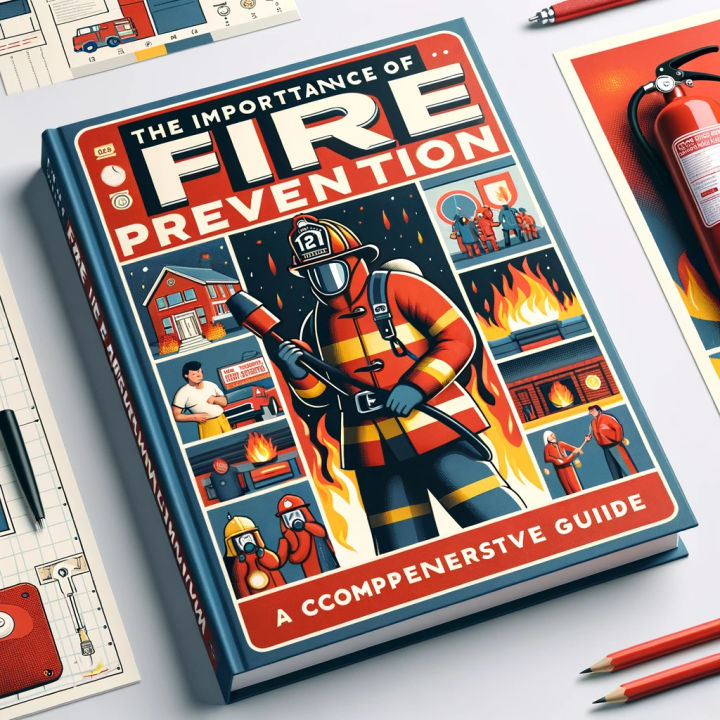
House fires are devastating events that can cause irreparable damage to lives and property. Tragically, many fires claim lives, leaving families with nothing but memories. In light of this, it is crucial to highlight fire safety and prevention strategies that can save lives and prevent such heart-wrenching incidents. Recent events in Manitoba, where a fire claimed the life of a 78-year-old woman, underscore the importance of being prepared and vigilant. This article aims to provide an in-depth look at fire safety, prevention techniques, and why it’s critical for individuals and families to have effective emergency plans in place.
The Tragic Incident in Richer: A Reminder of the Dangers of House Fires
On the night of December 2, 2024, Manitoba RCMP responded to a devastating house fire in Richer, Manitoba, that resulted in the tragic loss of a 78-year-old woman’s life. Firefighters and EMS were promptly on the scene after the fire was reported around 8:30 p.m., but despite their best efforts, the woman was pronounced dead due to the severity of the fire. A 14-year-old boy was fortunate enough to escape with only minor injuries, having suffered smoke inhalation, and was immediately transported to the hospital.
This tragic event highlights the importance of swift action, emergency preparedness, and, most importantly, fire prevention strategies that can significantly reduce the risk of such incidents.
The Role of Fire Safety Planning: A Vital Step Toward Protection
Every home should have a fire safety plan. Unfortunately, many families do not prioritize fire safety until a tragedy strikes. Being prepared can make all the difference in saving lives. A comprehensive fire safety plan should include the following:
- Escape Routes: Ensure every family member knows at least two ways to exit each room of the house. Windows and doors should be checked regularly for ease of opening, and any obstacles that could block a safe exit should be removed.
- Meeting Points: Choose a safe meeting point outside the home, such as a neighbor’s house or a designated spot across the street, where everyone can gather after evacuating the building.
- Smoke Alarms: Smoke alarms should be installed in every room, hallway, and near the kitchen, as well as on every level of the house, including the basement. These alarms should be checked monthly, and batteries should be replaced at least once a year.
- Fire Extinguishers: Having a fire extinguisher in easily accessible locations such as the kitchen, garage, and near fireplaces is crucial. Ensure that everyone knows how to use one in case of a small fire.
- Fire Drills: Regularly practice fire drills with your family to ensure everyone knows what to do in the event of a fire. This helps children and adults respond quickly and safely.
Why House Fires Happen: Common Causes and How to Prevent Them
Understanding the causes of house fires is essential for taking proactive measures. Some of the most common causes include:
- Electrical Fires: Faulty wiring, overloading circuits, or the misuse of electrical appliances can easily ignite a fire. To prevent this, ensure that all wiring is regularly inspected, use appliances safely, and never overload outlets.
- Kitchen Fires: The kitchen is one of the most common places for house fires to start. Grease fires, unattended cooking, or leaving flammable materials too close to the stove or oven can all lead to disasters. Always stay in the kitchen when cooking, especially when frying or grilling.
- Heating Equipment: Space heaters and fireplaces can cause fires if not properly maintained. Keep flammable materials away from heating sources, and have furnaces, chimneys, and space heaters inspected regularly.
- Smoking: Cigarettes or other smoking materials left unattended or disposed of improperly can ignite a fire. If you smoke, ensure that all materials are fully extinguished before discarding them.
- Candles: Candles left unattended or placed too close to curtains or other flammable materials are a significant fire hazard. Always extinguish candles before leaving the room.
The Importance of Fire Education: Raising Awareness in Our Communities
Community outreach and education are fundamental in preventing house fires. Survivors of past fires often share their stories to help others understand the importance of fire safety. Take, for example, Teagan Rasche, a survivor of a fire who spoke out to raise awareness about the lasting emotional impact of such tragedies. These efforts serve to remind people that fire safety isn’t just about protecting homes but about preserving lives.
To further assist in fire prevention, municipalities, schools, and fire departments can offer regular fire safety courses, provide informational resources, and conduct fire drills in schools and local organizations. By creating a well-educated community, we can reduce the number of lives lost to fire.
Supporting Fire Victims: Resources and Assistance
In addition to preventing fires, it’s essential to support victims who have been affected by house fires. Many organizations offer support services, such as financial assistance, housing, and emotional support. Local charities, such as the Red Cross, work tirelessly to provide victims with temporary housing, clothing, and food. It’s important for individuals and families to familiarize themselves with these resources in case of emergencies.
Local and National Resources for Fire Victims
- Red Cross: Provides immediate assistance with shelter, food, and clothing.
- Salvation Army: Offers financial assistance, counseling services, and household goods for fire victims.
- United Way: Supports community-based initiatives to help those impacted by disasters.
Conclusion: Staying Prepared and Protecting Lives
While we cannot predict when or where a fire may occur, we can take steps to minimize the risk and ensure that we are prepared for the worst. The tragic fire in Richer, Manitoba, serves as a stark reminder of the importance of fire safety planning, prevention, and education. By staying vigilant, implementing effective fire safety measures, and supporting those affected by house fires, we can create safer communities for everyone.
